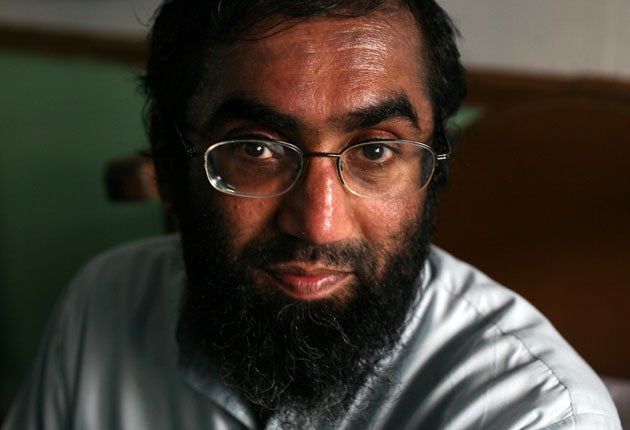Ramadan and me: A month in the life of British Muslims
Islam's month of daylight abstinence starts on Wednesday and, for the faithful in Britain, it is particularly tough. Rachel Shields asks how they prepare

Ramadan is almost upon us. This is the month in which Britain's 1.7 million Muslims will refrain from eating, drinking and sexual contact during daylight, and spend more time in prayer and religious contemplation.
Muslims across the country are preparing for the start of Ramadan on Wednesday. That means stocking up on tasty food, such spices, sweetmeats and sugary drinks, with which to break their daily fasts. It also means planning prayers and family gatherings.
Ramadan coincides with the start of the ninth month in the Islamic calendar – months begin with the sighting of the crescent Moon – and moves backwards by 10 days each year. The festival predates the Islamic calendar and was originally held in summer, thus the name Ramadan, which is related to the Arabic words ar-ramad and ramida, meaning intense heat and scarcity of rations.
While most Muslims attempt to fast – as a means of achieving piety – some take a more relaxed approach. Fasting this year will be particularly difficult for British Muslims, for whom daylight fasting means going 18 hours without food. Some point out that living in a non-Islamic country also makes fasting more arduous, as working hours remain the same.
We asked British Muslims across the country, who subscribe to different branches of Islam, what they would be doing to mark the festival.
Ayesha H Ali, 26
Teacher from Newcastle-under-Lyme
"For me, spirituality is a personal thing, I don't feel like I need to follow closely prescribed rules under Islam. It is good to feel what it's like to go without, but don't think it is healthy to do it for a whole month, especially in a society where Muslim traditions are not built into the routine. In countries such as Saudi Arabia, there are breaks built into the day, but that isn't the case here."
Farasat Latif, 41
Project manager from Luton
"I'm going to take some time off from my jobs – working with ex-offenders, and teaching business and English to overseas students – and use it to get closer to god. It is a spiritual time during which one abstains from things which are normally permissible, so we learn how to abstain. I will be fasting from dawn until dusk and praying five times a day, with congregational prayers in the evening."
Shelina Zahra Janmohamed, 35
Author from London
"For the past three years, I've organised a dinner in Ramadan in which I get 10 or so friends to bring people they know who are not Muslim to break the fast with us. As British people, we tend to be quite reserved about religion, but I think we should be open. In a recession, people can understand the importance of stepping back from consuming and focusing on what's inside rather than what we have."
Dr Shaaz Mahboob
NHS manager from London
"I try to fast for all 30 days, but if I'm not feeling well I won't keep the fast. When I used to work as a doctor and had a 48-hour shift, I wouldn't fast as it wasn't fair on my patients. Some people these days are too inflexible and intolerant towards other Muslims. For me, this is a one-month refresher course about how to be a good human being."
Shabana Mahmood, 26
Labour MP from Birmingham
"I always enjoy Ramadan. The first few days are pretty difficult, but you do iftar – break the fast – with your family, and there is a nice community feeling. For the past few years, Ramadan has straddled the party conferences, which has been difficult. Trying to give a speech in the heat of the lights without any food or drink is not easy. You just have to make yourself struggle through. It is character building if nothing else."
Ayesha Abdeen, 26
CEO, Muslim Women's Sport Foundation, from London
"I adhere to everything, fasting from dawn until dusk. It is quite a long day, hard at the beginning, but the benefits always outweigh the difficulties. It is one month of being disciplined and a reminder, especially for those who are always busy, of our surroundings and those less fortunate. It is a month where everybody gets together, we visit friends and family. There is a sense of community."
Join our commenting forum
Join thought-provoking conversations, follow other Independent readers and see their replies
Comments
Bookmark popover
Removed from bookmarks